Building a Support Network for Autism


Understanding the Importance of Support Networks in Autism
Building a support network for autism is essential for improving the quality of life for individuals on the spectrum and their families. This comprehensive guide explores strategies, resources, and community involvement that foster acceptance, understanding, and effective support.
The Impact of Raising Awareness and Fostering Community Support
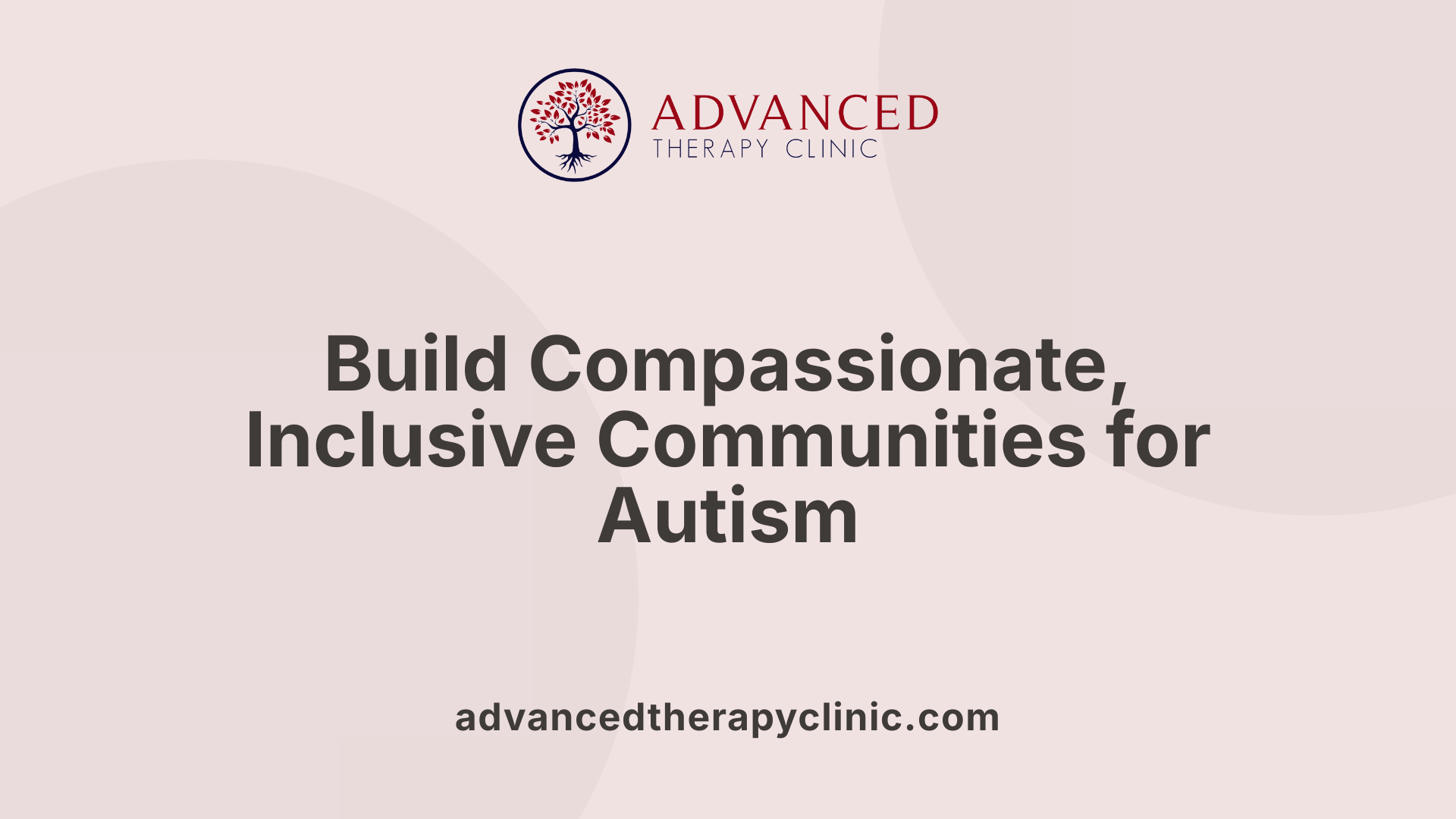
Why is raising awareness important in fostering supportive communities for autism?
Raising awareness about autism plays a vital role in creating understanding and acceptance within communities. When people are informed about what autism truly entails, they understand that it is a spectrum with many variations, including conditions like Asperger's syndrome and PDD-NOS. This knowledge helps dispel harmful myths and stereotypes that often lead to stigma.
An informed community is more capable of supporting autistic individuals by offering inclusive environments. Schools, workplaces, and local organizations can implement appropriate accommodations, policies, and programs that promote participation and success. Awareness efforts also strengthen early detection and intervention processes, which are crucial for improving social skills and communication.
Community support relies heavily on collective understanding. Awareness campaigns, community events, and educational programs foster empathy, encouraging societal advocacy and volunteering. This collective effort helps build strong support networks, making it easier for families and individuals to find resources, assistance, and companionship.
In summary, raising awareness is the foundation for a compassionate society. It ensures that autistic individuals are valued, supported, and able to contribute meaningfully to community life at every stage of their development.
Strategies for Building and Utilizing Support Resources
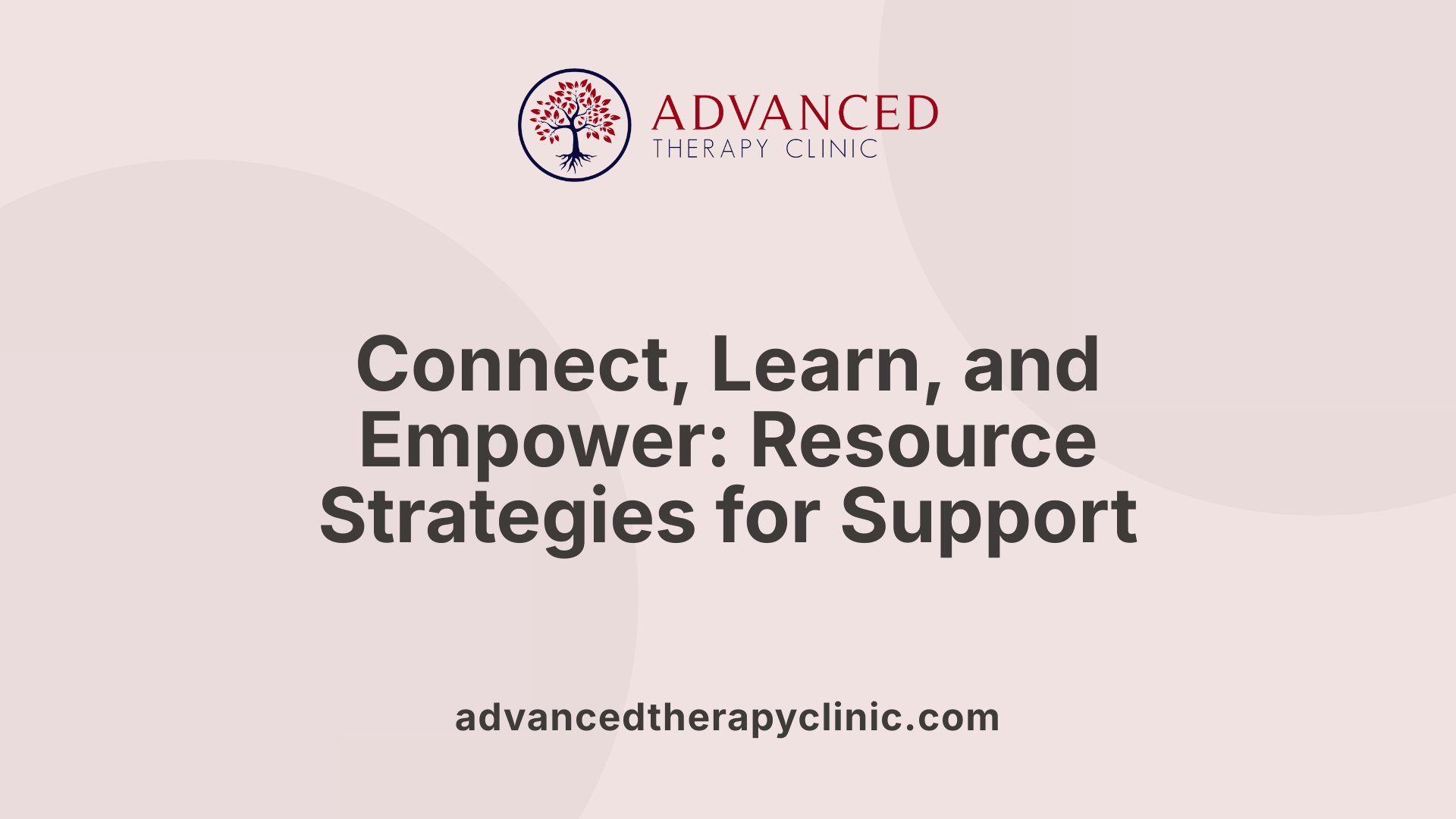
How can families access community and online resources to support children with autism?
Building a strong support network begins with connecting to available community-based and online resources. Local autism support organizations, such as the Autism Partnership Foundation, offer valuable services, training programs, and community activities designed to foster social inclusion and provide educational resources. Online platforms and social media groups, like those found through the Circles Network or Meetup, create virtual communities where families and individuals can share experiences, advice, and emotional support.
These resources facilitate access to information about autism spectrum disorder (ASD), different intervention techniques, and adaptive activities. Engaging with these sources early on ensures families are well-informed and connected to opportunities that match their child’s needs.
What is the importance of early intervention and ongoing support?
Early detection of autism is crucial for initiating support at the earliest stage possible. Interventions such as the Early Start Denver Model and Pivotal Response Treatment have demonstrated positive impacts on communication, social skills, and behavioral management. Early intervention programs often involve caregivers directly, empowering them to implement strategies consistently across home and school settings.
Ongoing support from professionals, including speech therapists, behavioral specialists, and mental health providers, helps adapt interventions as children grow and their needs evolve. Regular collaboration between families, educators, and healthcare providers ensures that support remains relevant and effective.
How can assistive technologies and professional help enhance autism support?
Assistive technologies, such as visual supports, social skills apps, and virtual reality tools like those used to reduce anxiety, enrich the support options available. Technology provides personalized assistance, encouraging communication and independence.
Professional help, including behavioral therapy, counseling, and telehealth services, complements these tools. For example, professional guidance can help families develop effective behavior management techniques, tackle anxiety, or navigate social interactions comfortably.
Resources for leveraging support effectively
| Resource Type | Examples | Description | Benefit |
|---|---|---|---|
| Community Organizations | Autism Partnership Foundation, local support groups | Offer training, social activities, and resource sharing | Build social skills, emotional support |
| Online Communities | Circles Network, Meetup | Facilitate virtual and in-person connections | Access to peer advice and shared experiences |
| Assistive Technologies | Visualization apps, VR programs | Aid communication, reduce anxiety | Enhance independence and reduce stress |
| Professional Support | Speech therapy, behavioral specialists | Provide tailored intervention and ongoing support | Improve communication, behavior management |
Developing a comprehensive approach by combining community resources, technological tools, and expert support creates a robust support network. This layered support helps improve quality of life, social inclusion, and developmental outcomes for individuals with autism.
Building Inclusive Support Networks in the Family and Community Contexts
What role do extended family, friends, and community play in supporting individuals with autism?
Support from extended family, friends, and the broader community is vital for individuals with autism and their families. These groups help create an environment that fosters understanding, acceptance, and participation. Family members and friends provide emotional encouragement, assist with daily routines, and help engage the individual in social activities, which enhances their sense of belonging.
Community engagement further expands these support systems through tailored programs and inclusive activities. Such activities are designed to match individual strengths and interests, promoting social skills development and building trust among participants. These settings also serve as platforms to challenge stigma and foster societal acceptance.
Educating family members, friends, and community participants about autism is essential. Knowledgeable support networks empower these groups to use supportive strategies, practice empathy, and adapt activities to meet diverse needs. This educational component ensures everyone can contribute positively and meaningfully.
By actively involving these groups, society not only benefits individuals with autism but also promotes greater understanding and acceptance of diversity. Community programs that include adaptive activities, social skills training, and informational sessions help cultivate an inclusive environment where people with autism can thrive.
Summary of support roles in a table:
| Support Area | Contributions | Additional Details |
|---|---|---|
| Family involvement | Emotional support, routines assistance, advocacy | Helps implement intervention plans effectively |
| Friend networks | Social inclusion, companionship, activity participation | Reduces loneliness, builds friendships |
| Community engagement | Inclusive events, awareness campaigns, local programs | Promotes acceptance, reduces stigma |
| Educational efforts | Autism awareness, empathy training, adaptive strategies | Improves support quality and response strategies |
Overall, collaborative support from family, friends, and community creates a foundation for meaningful inclusion. Their combined efforts nurture a safe and welcoming environment, empowering individuals with autism to reach their full potential and lead fulfilling lives.
Creating Support Networks through Partnerships and Organizations
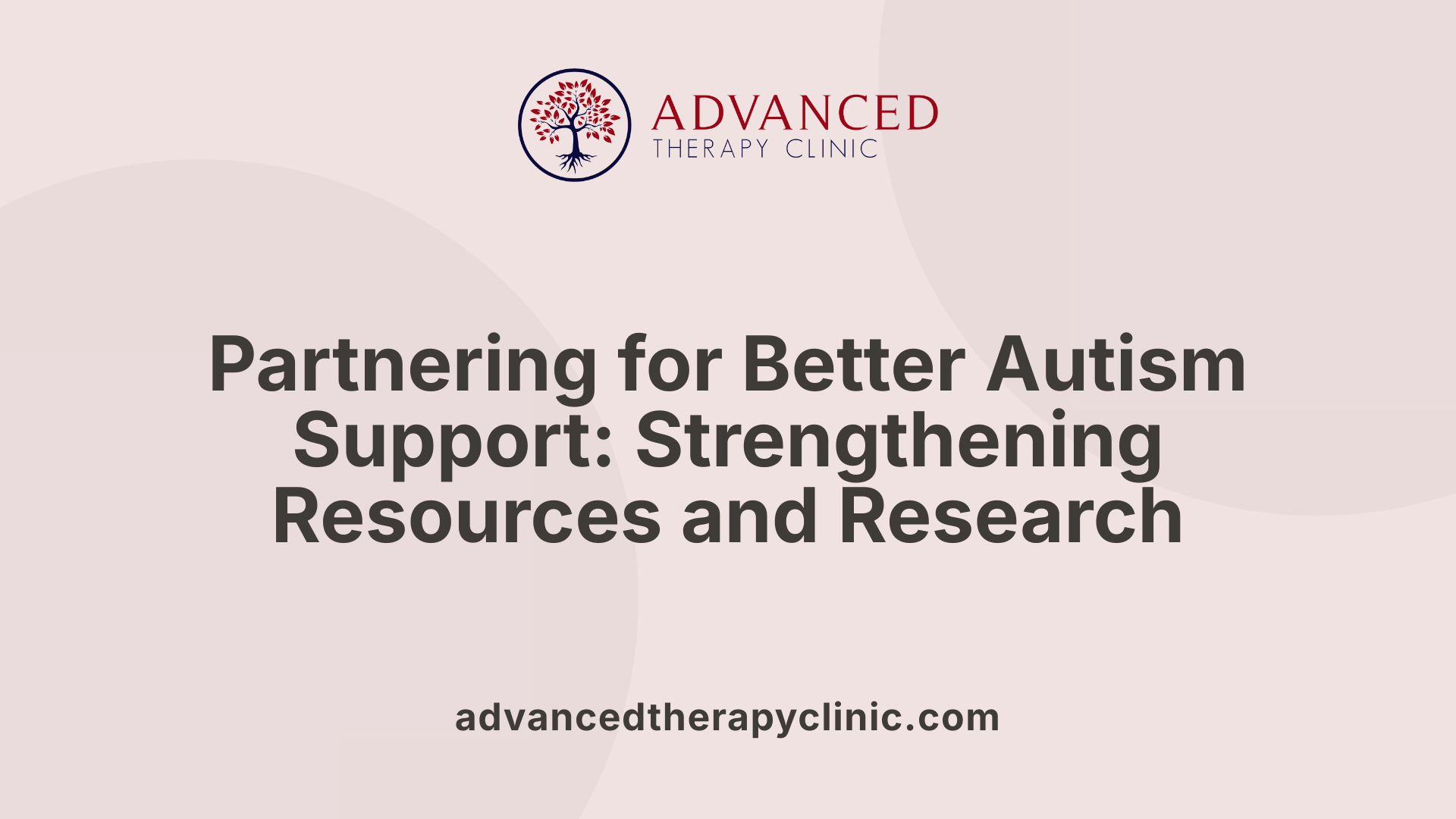
What resources and organizations are available to help establish autism support networks?
Various organizations play a vital role in building and strengthening support networks for individuals with autism and their families. Prominent among these are Autism Speaks, the Autism Society, and the Autism Science Foundation.
Autism Speaks provides a comprehensive Resource Guide to help families and caregivers locate local specialists and support services. They also operate programs like the Autism Response Team, which offers personalized assistance to families seeking guidance or resources. Additionally, Autism Speaks organizes community events designed to foster connections and raise awareness.
The Autism Society is another essential organization, known for supporting families through advocacy, training resources, and local affiliate networks. It helps families understand autism better, supports community-building efforts, and promotes awareness initiatives.
For families and students in higher education, the College Autism Network stands out as a specialized resource. It facilitates collaboration among educational institutions, research bodies, and employment services to improve the college experience and postsecondary support for students with autism.
Together, these organizations contribute to the development of strong, informed support networks. They offer resources, advocacy, research opportunities, and community engagement that are critical for navigating the autism spectrum.
Partnerships with autism-focused organizations
Partnering with autism organizations enhances support by pooling resources and expertise. Many organizations, including government agencies and private foundations, work together to fund research, share best practices, and develop community programs.
Partnerships can include collaborations between local service providers, schools, health care systems, and national organizations. These alliances foster comprehensive support approaches, combining medical, educational, and social services to promote well-being and inclusion.
The Building a Support Network for Autism program exemplifies such collaboration, emphasizing research, professional training, and community involvement to serve individuals with autism and their families better.
Resources for postsecondary students with autism
Supporting college students on the autism spectrum involves tailored programs and resources. The College Autism Network is at the forefront of this effort, offering training for faculty and staff, developing inclusive policies, and connecting students with support services.
Resources include social skills workshops, career development programs, and mental health services specifically designed for postsecondary students with autism. These initiatives aim to improve their academic experience, facilitate social inclusion, and ensure access to necessary accommodations.
By fostering partnerships among educational institutions, disability services, and autism organizations, students receive more comprehensive, accessible support that addresses their unique needs.
| Organization | Main Contributions | Additional Services |
|---|---|---|
| Autism Speaks | Resource guides, community programs | Autism Response Team, awareness campaigns |
| Autism Society | Advocacy, local support networks | Training resources, family support |
| College Autism Network | Postsecondary resources, training | Research collaborations, student programs |
These collaborative efforts and resource centers are essential ingredients in creating vibrant, supportive communities for individuals with autism across all stages of life.
Developing Effective Support Networks for Individuals and Families
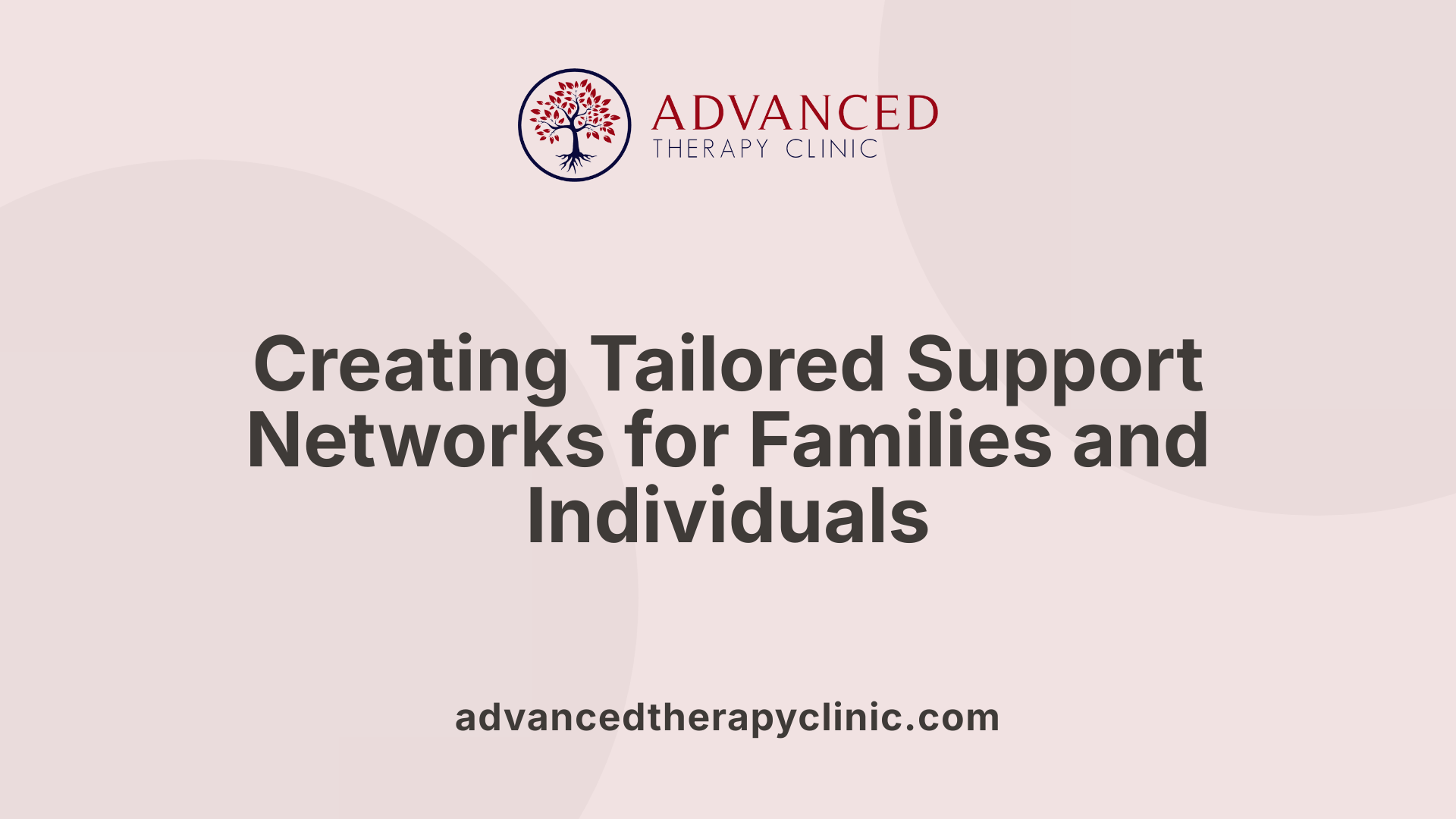
How can I create an effective autism support network that meets the needs of individuals and families?
Building a strong support system for autistic individuals and their families begins with understanding their unique needs and fostering collaboration among various stakeholders.
Assessment and early diagnosis are fundamental steps. Early detection, ideally before age three, allows for timely intervention, which can significantly improve developmental outcomes. Comprehensive assessments help identify specific needs related to communication, social skills, sensory sensitivities, and behavioral patterns.
Family-centered planning is crucial. Involving families in decision-making ensures that support services align with their routines, cultural backgrounds, and everyday challenges. For example, adjusting intervention goals to fit routines like bath time instead of dinnertime demonstrates respect for family circumstances.
Partnerships with professionals and community resources further strengthen support networks. Collaborations with healthcare providers, educators, and autism organizations such as the Autism Partnership Foundation or the College Autism Network enable access to resources, research, and community services. These alliances facilitate sharing of evidence-based practices and innovative tools, including virtual reality or adaptive fitness programs, to help reduce anxiety and promote physical well-being.
Providing education about autism is equally important. Families, friends, and community members benefit from learning about autism spectrum variations, behavioral strategies, and cultural competence. This knowledge reduces stigma and fosters understanding.
Supporting social inclusion through organized activities, social skills training, and online communities like Meetup or Circles Network offers meaningful engagement opportunities. Gradual exposure to new places and social settings, with appropriate support like visual aids or conversation prompts, can ease anxieties and build confidence.
Finally, ongoing evaluation and adaptive services ensure that support remains relevant as needs evolve. Regular communication between families and professionals helps in refining interventions and services.
| Aspect | Focus | Additional notes |
|---|---|---|
| Early Detection | Screening and diagnosis | Critical for initiating timely interventions |
| Family Involvement | Planning and decision-making | Ensures services meet family needs |
| Community Partnerships | Healthcare, education, and advocacy | Enhance resource availability and reduce stigma |
| Education & Training | Autism awareness and skills | Promotes cultural competence and reduces misconceptions |
| Social Inclusion | Activities and social skills | Encourages meaningful engagement and peer relationships |
| Continuous Support | Monitoring and adaptation | Keeps services relevant and effective |
Creating an effective autism support network requires dedicated effort, collaboration, and ongoing learning. By combining early diagnosis with family-centered approaches and strong community partnerships, families and individuals can access the resources and understanding they need to thrive.
Supporting Social Skills Development and Anxiety Management
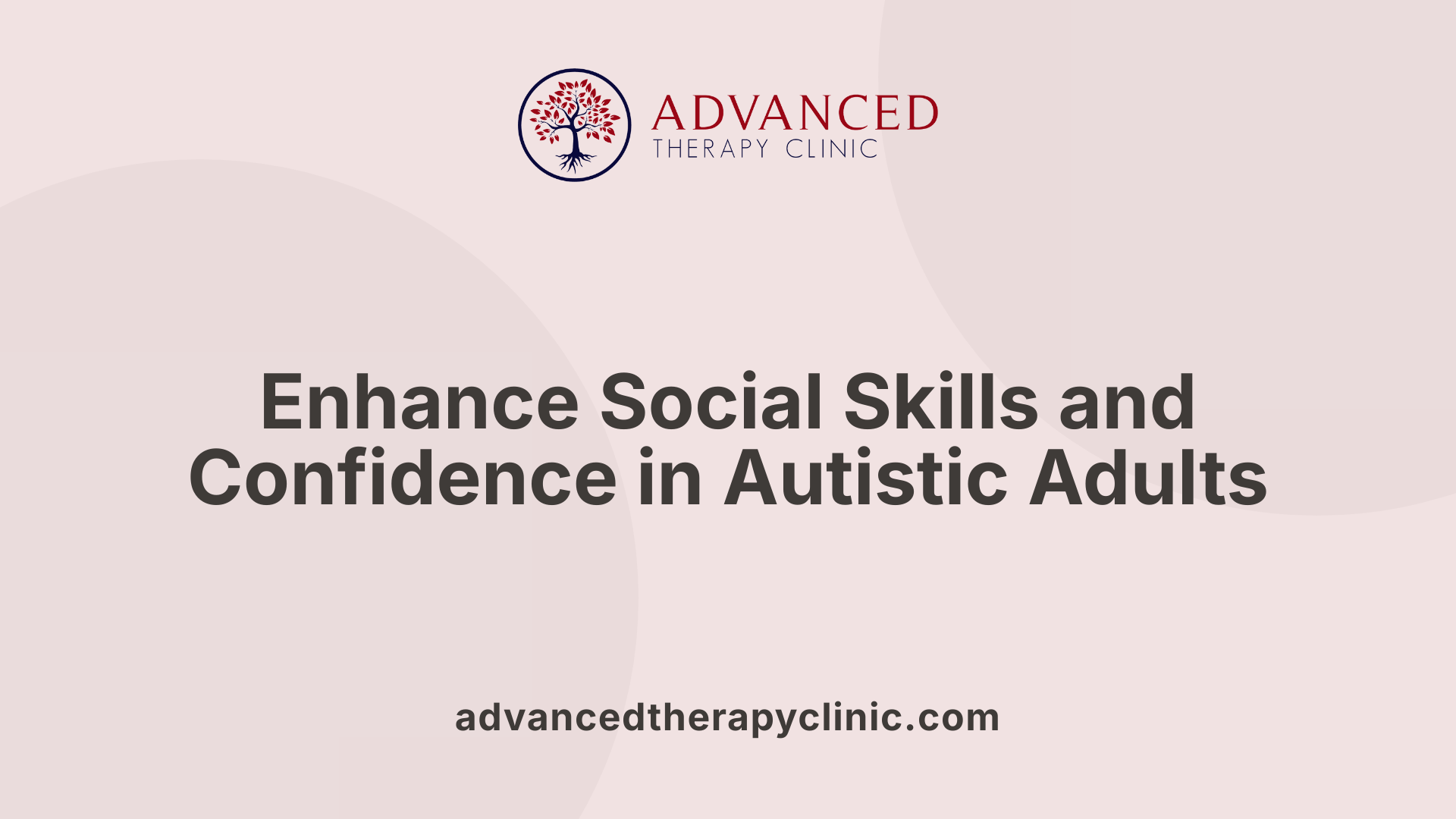
How can I develop social connections and support systems for autistic adults?
Building social connections for autistic adults involves engaging in community activities tailored to their interests and needs. Support groups, both local and online, provide a platform for sharing experiences and forming friendships. Interest-based activities like art classes, book clubs, gaming groups, or music lessons help create meaningful social bonds.
Organizations such as Autism Speaks and Easterseals offer specialized programs that include social events, employment support, and residential services. These programs are designed to promote inclusion and help individuals develop essential social skills.
Understanding social cues and managing anxiety are crucial components of social development. Professional support from general practitioners, counselors, or social service agencies can aid in addressing anxiety and improving social competence.
Deciding whether to disclose an autism diagnosis is a personal choice. When shared in supportive, understanding environments, disclosure can foster better support and reduce feelings of isolation.
Participation in accessible and inclusive environments enhances social engagement, providing opportunities for autistic adults to connect, learn, and thrive within their communities.
Here's an overview of methods and resources to support social skill growth and anxiety management for autistic adults:
| Method | Description | Additional Notes |
|---|---|---|
| Support Groups | Local and online groups for shared experiences and friendship. | Can focus on specific interests or general support. |
| Interest-based Activities | Engaging in hobbies like art, music, or gaming. | Facilitates social interaction through shared hobbies. |
| Professional Support | Counseling, social skills training, and anxiety management. | Includes therapy, coaching, and community services. |
| Use of Inclusive Spaces | Participating in accessible community events. | Reduces barriers to participation. |
| Disclosure of Diagnosis | Sharing diagnosis in supportive contexts. | Personal decision; may improve understanding. |
Understanding the spectrum of autism and individual preferences helps in creating tailored and effective support networks, promoting confidence and community integration for autistic adults.
Fostering an Inclusive and Supportive Environment for All
Building a comprehensive support network for autism requires collaboration across families, communities, professionals, and organizations. By increasing awareness, utilizing available resources, fostering family and community involvement, and establishing strong partnerships, society can create inclusive environments where autistic individuals are understood, accepted, and empowered. Emphasizing early intervention, ongoing education, and social connection development ensures that support systems adapt to evolving needs, ultimately improving outcomes and quality of life. A collective effort rooted in empathy, knowledge, and collaboration can transform local and global communities into safe havens of support, understanding, and celebration of human diversity.
References
- Autism: support from family & friends
- Autism Support Networks and Partnerships: The Power of ...
- Making friends - a guide for autistic adults
- Working with Families of Children with Autism Spectrum ...
- College Autism Network
- Issue 151 — Building A Support Network
- Autism Speaks: Autism support, resources & advocacy
- Private and Non-Profit Organizations
Recent articles

The Role of ABA Therapy in Teaching Independent Living Skills
Unlocking Independence: How ABA Therapy Empowers Daily Living Skills

The Importance of Speech Therapy for Communication Development
Enhancing Communication: How Speech Therapy Shapes Childhood Development
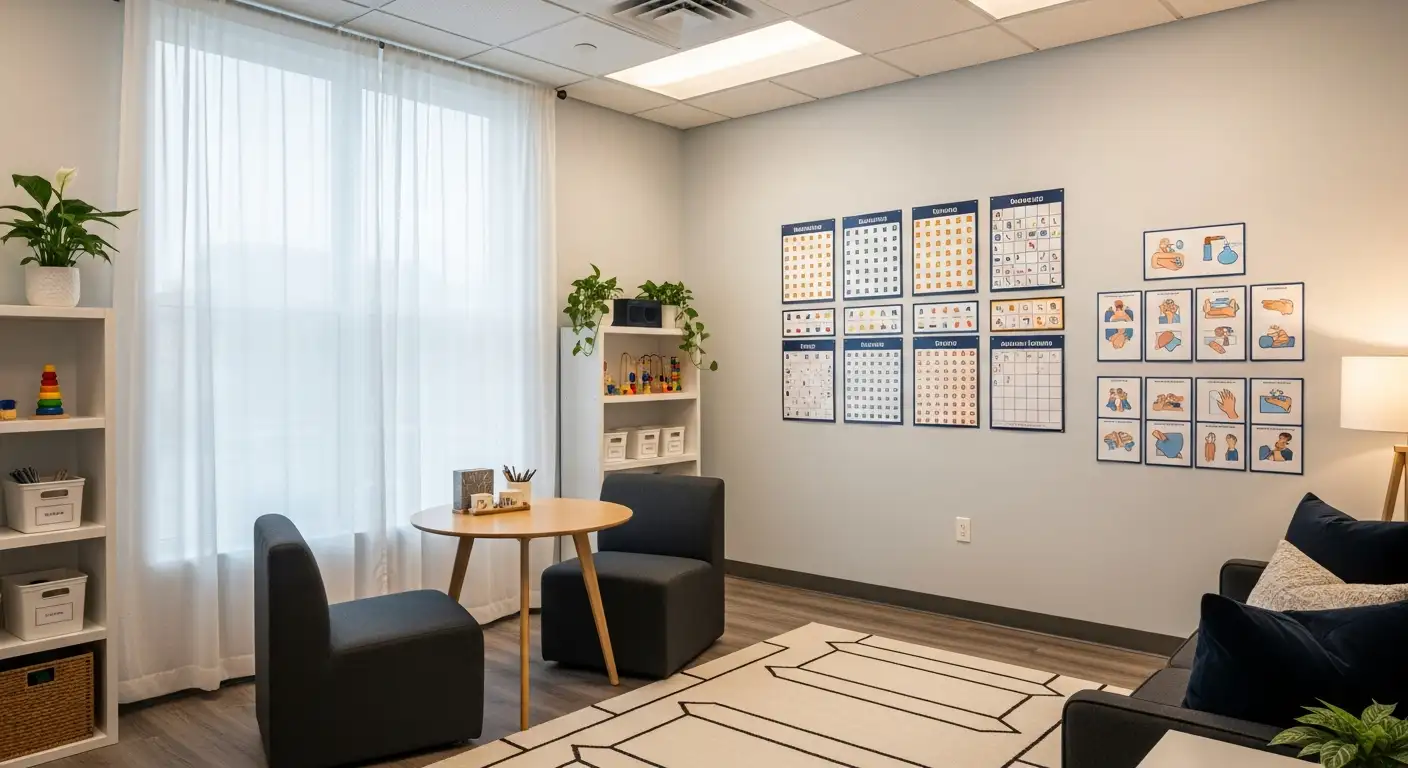
How Behavior Analysis Helps Children Learn to Follow Instructions
Unlocking Skills: The Power of Behavior Analysis in Teaching Children to Follow Instructions

What Is Speech Fluency?
Understanding the Essentials of Speech Fluency and Its Disorders

What Is Speech Fluency?
Understanding the Essentials of Speech Fluency and Its Disorders

Teaching Writing to Students with Autism
Unlocking the Potential: Effective Writing Instruction for Students with Autism

